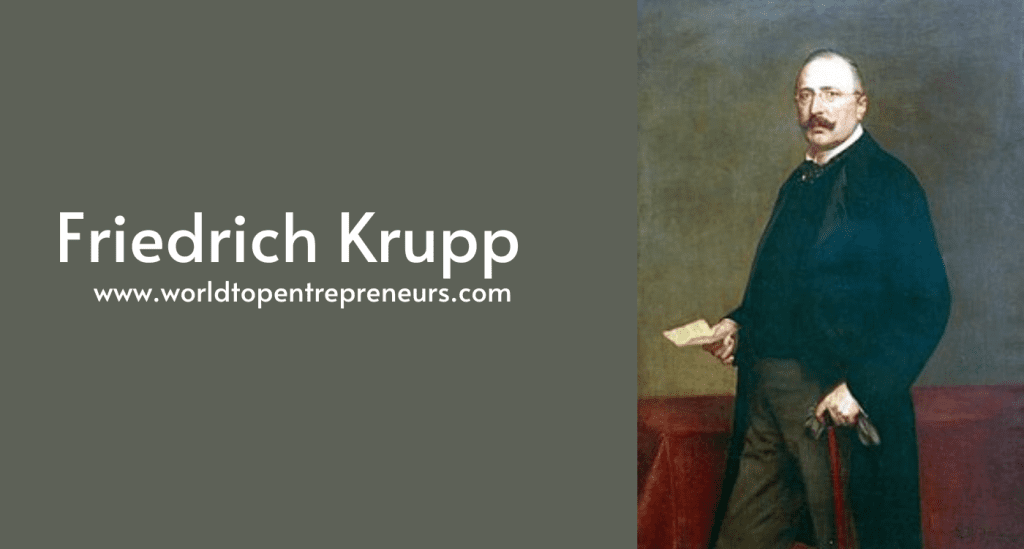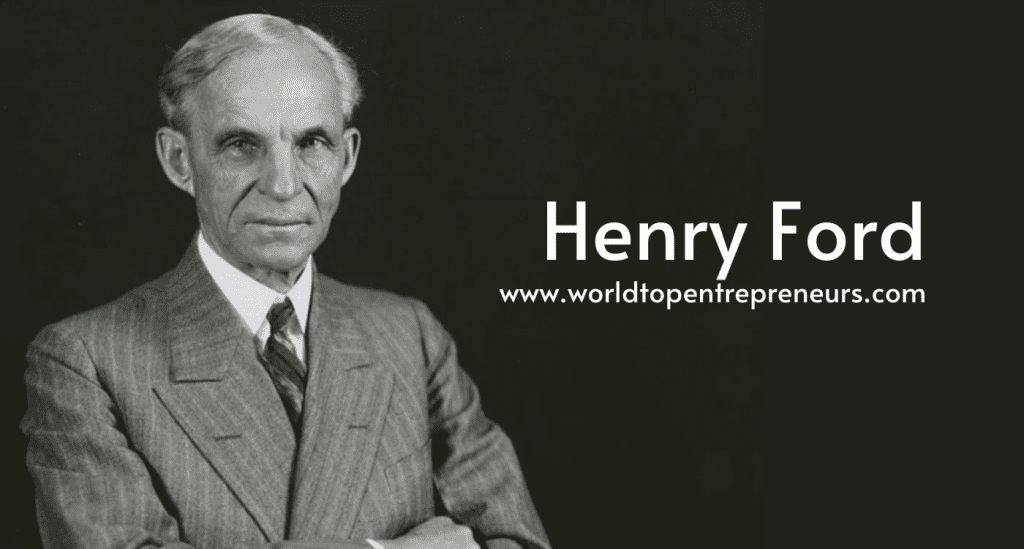Friedrich Krupp, the founder of Krupp, is a name synonymous with industrial prowess and innovation. His journey from a modest beginnings to becoming a key figure in the steel and armaments industry is a tale of ambition, strategic acumen, and transformative impact. The story of Friedrich Krupp is not merely about creating a successful company; it is about reshaping an entire industry and contributing to the broader narrative of industrialization.
Early Life and Foundational Years
Friedrich Krupp was born on October 26, 1813, in Essen, a small town in what is now Germany. He was the youngest of four children in a family with a history of metalworking. His father, Wilhelm Krupp, was a skilled blacksmith who ran a modest ironworks business. Although the Krupp family was not wealthy, they were known for their craftsmanship and dedication to their trade.
From an early age, Friedrich showed an aptitude for business and an interest in his father’s work. His education was practical rather than formal; he learned the trade by working alongside his father. This hands-on experience provided him with a deep understanding of metalworking, which would later become the cornerstone of his success.
In 1834, at the age of 21, Friedrich took over the family business following his father’s death. The ironworks, which had been operating in a small workshop, was on the brink of closure due to financial difficulties. Despite these challenges, Friedrich was determined to turn the business around. He focused on improving the quality of their products and expanding their market reach. His approach was innovative for the time: he understood that in order to succeed, he needed to invest in both technology and human resources.
The Founding of Krupp
In 1848, Friedrich Krupp formally established Krupp, which began as a small ironworks company. The name “Krupp” would eventually become a symbol of industrial excellence and technological advancement. Friedrich’s vision was to create a company that was not only a leader in iron production but also a pioneer in steelmaking and armaments.
The key to Friedrich’s success lay in his commitment to innovation. In 1850, he invested in new technology that allowed for the production of high-quality cast steel. This steel was stronger and more durable than traditional iron, and it quickly gained recognition for its superior properties. The introduction of steel into their product line marked the beginning of Krupp’s rise to prominence.
Friedrich Krupp’s business strategy was also characterized by a focus on long-term relationships with customers. He understood that building trust and reliability with clients was essential for sustaining growth. As a result, Krupp established a reputation for delivering high-quality products consistently, which helped the company secure significant contracts both domestically and internationally.
Expansion and Innovation
Under Friedrich Krupp’s leadership, the company continued to expand and innovate. One of the major milestones in Krupp’s history was the development of the first seamless steel cannon in the 1850s. This cannon represented a significant advancement in military technology, as it was more reliable and effective than previous designs. The success of the seamless steel cannon positioned Krupp as a leader in the armaments industry and set the stage for further innovations.
In addition to its achievements in armaments, Krupp also made significant contributions to industrial technology. The company pioneered several manufacturing processes and developed new machinery that enhanced productivity and efficiency. One of the most notable innovations was the development of the Krupp rolling mill, which allowed for the continuous production of steel plates. This technology revolutionized the steel industry and established Krupp as a major player on the global stage.
The success of these innovations led to rapid expansion. By the late 19th century, Krupp had become one of the largest and most influential industrial enterprises in Europe. The company’s growth was supported by strategic investments in infrastructure, including the construction of new factories and the acquisition of raw materials.
The Krupp Legacy and Impact
Friedrich Krupp’s legacy extends beyond the success of his company. His contributions to the steel and armaments industries had a profound impact on the industrialization of Germany and the broader European market. Krupp’s innovations in steelmaking and armaments played a crucial role in shaping modern industrial practices and military technology.
One of the most significant aspects of Friedrich Krupp’s legacy is his emphasis on technological innovation. His willingness to invest in research and development and his commitment to improving manufacturing processes set a standard for industrial enterprises. The advancements made by Krupp in steelmaking and armaments influenced the development of other industries and contributed to the overall progress of industrial technology.
Friedrich’s approach to business also had a lasting impact on corporate management and organization. He was known for his hands-on leadership style and his focus on building strong relationships with employees and clients. This approach fostered a sense of loyalty and dedication within the company, which was instrumental in its success. Friedrich Krupp’s leadership style and business practices continue to be studied and admired by business leaders and scholars.
Challenges and Resilience
Despite his many achievements, Friedrich Krupp faced numerous challenges throughout his career. The industrial landscape of the 19th century was characterized by rapid change and intense competition. Krupp had to navigate these challenges while maintaining the company’s commitment to quality and innovation.
One of the major challenges faced by Krupp was the volatility of the steel and armaments markets. Economic downturns and fluctuations in demand could have a significant impact on the company’s performance. To address these challenges, Friedrich Krupp adopted a proactive approach to market analysis and strategic planning. He invested in market research and developed strategies to adapt to changing conditions.
Another challenge was the need to manage and integrate new technologies into the company’s operations. As Krupp introduced new manufacturing processes and machinery, it was essential to ensure that these innovations were effectively implemented and supported by the workforce. Friedrich Krupp invested in training and development programs to ensure that employees were equipped to handle new technologies and processes.
The global nature of the steel and armaments industries also presented challenges for Krupp. The company had to navigate complex international trade relations and deal with the logistical challenges of exporting products to different regions. Friedrich Krupp’s strategic approach to international expansion and his focus on building strong relationships with international clients helped the company overcome these challenges and establish a global presence.
Social Responsibility and Legacy
Friedrich Krupp’s contributions to industry were not limited to technological and business achievements. He also made significant contributions to social and philanthropic causes. Throughout his career, Friedrich Krupp was committed to improving the welfare of his employees and supporting community initiatives.
One of the key aspects of Friedrich Krupp’s social responsibility was his focus on employee welfare. He implemented various programs to improve working conditions, provide healthcare benefits, and support employee families. Krupp’s commitment to employee well-being was ahead of its time and contributed to a positive work environment within the company.
In addition to his efforts to support employees, Friedrich Krupp was also involved in philanthropic activities. He supported various charitable organizations and community projects, including initiatives related to education, healthcare, and cultural development. His philanthropic efforts reflected his belief in the importance of giving back to society and contributing to the broader community.
Friedrich Krupp’s legacy is also reflected in the continued success of Krupp as a company. Despite the challenges and changes that the company has faced over the years, Krupp has remained a major player in the steel and armaments industries. The company’s ongoing commitment to innovation and excellence is a testament to the foundation laid by Friedrich Krupp.
Conclusion
Friedrich Krupp’s journey from a small ironworks shop to the head of a global industrial empire is a remarkable story of vision, innovation, and resilience. His contributions to the steel and armaments industries have had a lasting impact on industrial technology and corporate management practices. Through his leadership, Krupp became a symbol of industrial excellence and technological advancement.
Friedrich Krupp’s legacy is characterized by his commitment to innovation, his emphasis on quality and reliability, and his dedication to social responsibility. His approach to business and leadership has inspired generations of entrepreneurs and business leaders. As we look back on his achievements and contributions, it is clear that Friedrich Krupp’s impact on industry and society continues to be felt today.
The story of Friedrich Krupp is not just a tale of business success; it is a story of how one individual’s vision and determination can transform an industry and leave a lasting legacy. His contributions to the steel and armaments industries have shaped the course of industrial history and continue to influence the world of business and technology.





















